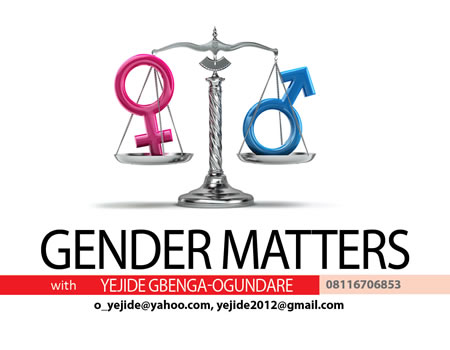There is a consensus that women in Nigeria, like their counterparts across Africa, are not given the same chances socially, economically and politically as their male contemporaries. It is believed that this disparity, like other issues, is the reason women empowerment is not an easy task in this part of the world.
This situation is further worsened by entrenched bias along divides of religion, culture, ethnicity, occupation and region which still hampers the effectiveness of the few public policies provided to improve the lot of women in societies across Africa.
It is said that the number of women that live below the poverty line is double the figure of men wallowing in poverty, while even in work places, women are said to face countless glass ceilings that hinder their upward movement to key managerial positions in spite of legal protection provided by gender friendly laws aimed at promoting gender equality.
Despite advocacies and passing of bills enforcing women’s rights, there are still countless gender-biased laws in existence, and these laws render the acts aimed at protecting women useless as the society seems to prefer such biased laws.
Such biased laws include the inability of women to confer citizenship status on a foreign spouse like their male counterparts as well as the provision that female police officers must ask for permission before getting married. Also, in many cultures, women are not allowed to own or inherit property and the law gives everything a woman has to her husband.
A major issue that compounds the challenge is the patriarchal nature of the Nigerian society which influences its culture across diverse ethnicity. This has been identified as a major setback in issues of empowering Nigerian women.
Often, civil societies and nongovernmental bodies have to contend with irate husbands that accuse them of trying to teach their wives not to respect them merely because the organisations want to teach the women to be financially dependent by teaching them a trade or giving them a source of income.
This is reinforced by the fact that women’s rights are integrated into customary law, which makes it easy to infringe on their basic rights, especially since the cultural setup is that the man takes important decisions in the household and can veto and override any dissenting voice even if it hampers others and affects them negatively.
In addition to this, the biased cultural orientation and religious ordinances make it a herculean task to break the shackles that hold women in poverty. And to make matters worse, the girlchild is brought up with this unwritten code which is reinforced by the way her mother is treated. This, in addition to other factors like preference for the boy-child, preferential treatment given to boys, inability of many women to have a voice in their homes leading to loss or lack of identity, violence in the guise of correction, makes it easy to institutionalise gender inequalities.
These norms are internalised by children and it becomes the guidelines for the life they will live in future and the way they will address issues. It is disheartening that women also internalize this and they consequently expect it and this makes it difficult to bring the desired change.
Most Nigerian women consequently limit themselves to the role dictated by the socio-cultural norms of the society; they do not challenge themselves or the status quo of society’s expectations.
And with the society setting up benchmarks that stop women from being empowered what then is the way out to ensure women attain their potential and break the jinx of poverty?






